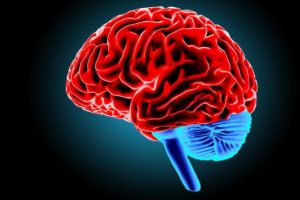
In the domain of functional medicine and dementia prevention, understanding risk factors is paramount. While well-known factors such as diabetes, stroke, heart disease, and depression have long been scrutinised, recent research has shed light on additional contributors to young-onset dementia (YOD). A study, led by Stevie Hendriks, PhD, from Maastricht University, Netherlands, delves into a multitude of factors potentially linked to YOD, providing crucial insights for both practitioners and individuals striving to safeguard cognitive health.Exploring the Study:
The study, conducted rigorously using data from the UK Biobank, encompassed a substantial cohort of 356,052 participants under 65 years old. Through meticulous analysis, researchers identified 39 potential risk factors, spanning genetic predispositions to lifestyle choices, and examined their association with YOD. These factors were categorised into various domains, offering a comprehensive view of the multifaceted nature of dementia risk.
Key Findings:
Over an average follow-up period of more than 8 years, the study identified 485 incident cases of YOD. Traditional risk factors such as stroke, heart disease, diabetes, and depression demonstrated their well-established association with YOD. However, the study unearthed novel insights, implicating vitamin D deficiency, elevated C-reactive protein (CRP) levels, and social isolation as significant contributors to YOD risk.
The discovery that certain levels of alcohol consumption, higher education levels, and handgrip strength may confer protective effects against YOD adds complexity to our understanding. Moreover, gender-specific nuances were observed, with variations in the impact of diabetes and CRP levels on YOD risk between men and women.
Implications in Practice:
The implications of this study are profound. While acknowledging the need for further exploration to elucidate underlying mechanisms, the researchers emphasise the practical significance of their findings. Addressing modifiable risk factors identified in this study presents a tangible opportunity to mitigate the risk of developing YOD. Integrating these insights into existing dementia prevention initiatives holds promise for fostering cognitive resilience among individuals at risk.
From a Functional Medicine perspective, we have always made the association between inflammation and blood glucose and these are elements where lifestyle change can have enormous preventative benefit.
As we navigate the intricate landscape of dementia prevention, studies like this serve as guiding lights, illuminating previously unexplored pathways. By broadening our understanding of YOD risk factors and their interplay, we empower both practitioners and individuals to take proactive steps towards cognitive well-being. As the journey towards unravelling the mysteries of dementia continues, each discovery brings us closer to a future where cognitive decline is but a distant memory.
